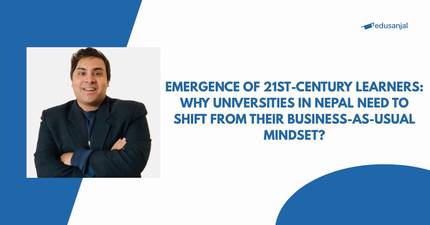The Model United Nations is a simulated session of the United Nations General Assembly (UNGA) and other UN organs, where students acting as delegates conduct entire sessions as if they were a real congregation. The Model UN is a great platform for young students to learn about the operations of the UN global system. Students all across the world, a hundred of thousands of them take part in this annual event.
The practice is new in Nepal as compared to the rest of the world and highly acclaimed given that many leaders of the western world today were once students participating in the Model UN.
Budhanilkantha School was the pioneer in introducing Model UN to Nepal. Besides schools, several non-profit organizations as well as educational groups, especially youth groups organize Model UN in Nepal.
It is believed that this simulated activity contributes towards shaping the learners' belief system and imbues in them the leadership quality along with governance skills. Worldwide it is widely accepted that such programs in school curriculum reflect the international standard of education.
The detailing of these programs is very compelling. The student-led delegation is supervised by the faculty and strictly follows the set guidelines. Although similar, the guidelines may vary from school to school and organization to organization. The students play the role of delegates and in the simulated sessions, work to solve real-world issues and draft plans and policies all the while assuming the role of their respective nations assigned to them. Such forums are expected to inspire in the students the values of democracy and inherit them with the basic principle followed by the United Nations. In understanding the pattern of negotiations conducted at the United Nations assembly and its organs, the students aspire to be ready for the real world, where international negotiations are formulated in a similar manner.
It is not required for any schools or clubs to register with the United Nations to conduct Model UN conferences. They operate independently from the United Nations. Usually, schools or organizations that hold Model UN register teams/students. Once the students are registered in teams, they’re given a specific country to represent and that particular team of students will represent the country in different model UN committees with different topics. These committees could be the disarmament committee, the economic and financial committee, the human rights committee, the women rights committee et cetera.
Once the team signs up for a conference, they are provided with the country assignment, committee, and its topics. There are usually guides or synopsis made available to familiarize the students with the topic.
In a standard MUN conference, every team is required to work on their position paper along with the opening speech and a research binder.
- The position paper is a summary statement describing the position of your respective country in the committee. The position paper should include a brief introduction of the topic/issue followed by country policy along with proposed solutions. Position papers also need to include records of the country's previous positions on the issue.
-
The position paper is usually submitted before the conference and the opening speech is what you present in the forum. The speech should cover the key points mentioned in the policy paper. Not only the content but speakers should also thoroughly work on their presentation skills to render the opening speech impactful.
-
Research Binders help the participants to note down important information shared in the conference and keep track of the proceeding for their own purposes.
-
As the end result of the conferences, delegates in the committee are required to frame a combined resolution along with other countries working on the issue. Resolutions are drafted after the conference proceedings come to an end.
Although the process of the proceedings varies from school to school and organization to organization, all the proceedings converge along the lines of passing a resolution outlining problems and proposed solutions.












